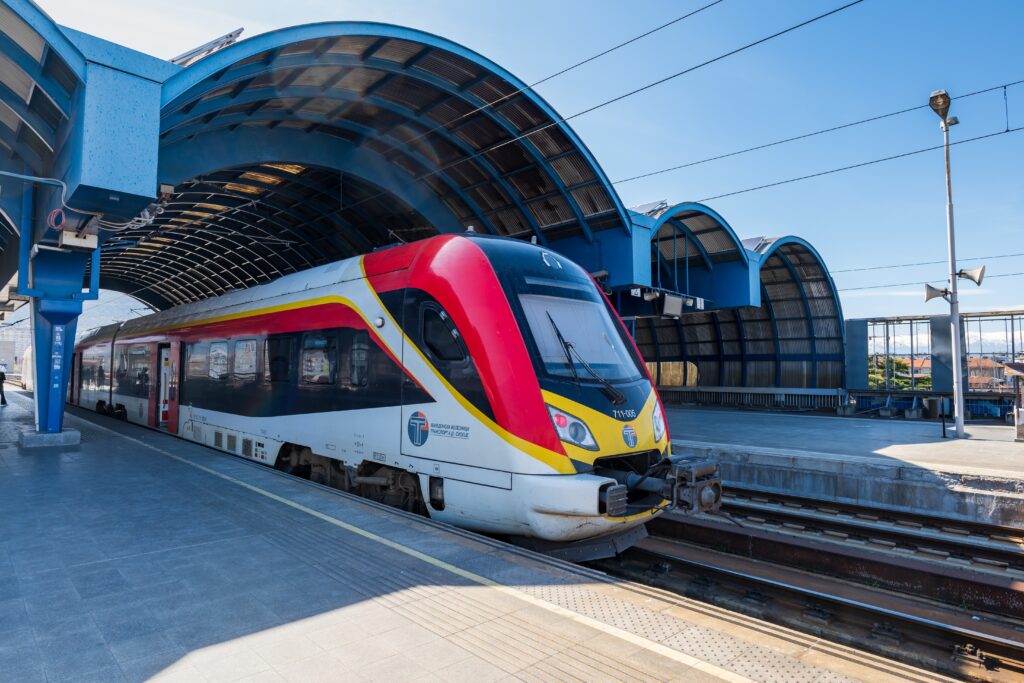North Macedonia’s new railway link: A step towards EU integration and economic revitalization

North Macedonia’s new railway link: A step towards EU integration and economic revitalization
North Macedonia has kicked off the construction of a long-awaited railway, which represents “a missing gateway” in the European rail network that will run from Germany to Bulgaria. The European Union is providing assistance to the 89 km section from Kumanovo to the Bulgarian border, with plans to complete before the end of the decade.
“The European Union is supporting North Macedonia in developing a functional and modern railway system, which will provide better connectivity, quality of life and increased economic development opportunities for citizens. Integrating railway connections into North Macedonia’s transport network is one of the European Union’s priorities, because it will ensure efficient climate-friendly movement for people and freight across the European continent” said David Geer, head of the EU delegation to North Macedonia.
The EU is also financing the segment, which began construction in 2022, from Kumanovo to Beljakovce (31 km), as part of the commitment to electrify the entire line to (Skopje – Veles – Beljakovce – Kumanovo – border with Bulgaria) to connect with Bulgaria, thereby ensuring a modern and efficient railway network.
“This project will improve the working conditions of the railway employees, provide safer railway services, and it will allow for greater possibility for development and growth of the North Macedonia economy as a whole,” said Finance Minister Fatmir Besimi.
For this pivotal rail route, €560 million has been secured under the auspices of Team Europe. The funds entail a €175 million loan from EIB Global and another loan of equal size from the European Bank for Reconstruction and Development. These loans will be complemented by a €150 million EU grant through the Western Balkans Investment Framework and a grant of as much as €60 million from the Instrument for Pre-accession Assistance. The project forms part of the Global Gateway, the European Union’s strategy that aims at narrowing the global investment gap for vital infrastructure.
“This is not just a project about railways. It is about transforming North Macedonia’s railway system for the 21st century! Improving competition and enhancing market quality in the railway sector, as part of North Macedonia’s effort to integrate into the wider European green and connectivity agenda,” said Jürgen Rigterink, First Vice President of the EBRD.
With a 1873 railway history, North Macedonia is reinforcing sustainability and moving closer toward EU integration, highlighting that indigenous determination plus cooperation can take on any lack of significant infrastructure.



